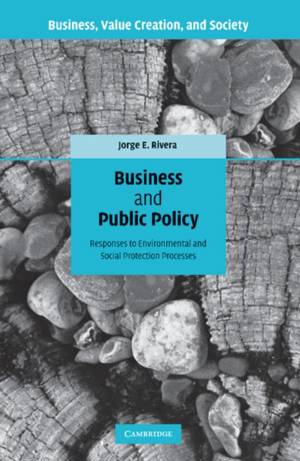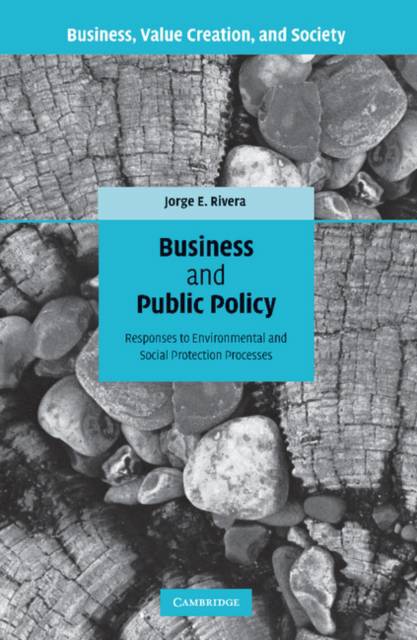
Je cadeautjes zeker op tijd in huis hebben voor de feestdagen? Kom langs in onze winkels en vind het perfecte geschenk!
- Afhalen na 1 uur in een winkel met voorraad
- Gratis thuislevering in België vanaf € 30
- Ruim aanbod met 7 miljoen producten
Je cadeautjes zeker op tijd in huis hebben voor de feestdagen? Kom langs in onze winkels en vind het perfecte geschenk!
- Afhalen na 1 uur in een winkel met voorraad
- Gratis thuislevering in België vanaf € 30
- Ruim aanbod met 7 miljoen producten
Zoeken
Omschrijving
It is increasingly common for businesses to face public policies and government regulation that demand some form of environmental or social protection. These protective public policies have grown in number, complexity, and stringency over the last few decades, not only in industrialized countries but also in the developing world. In this book, Jorge Rivera presents a new theoretical framework for understanding the relationship between protective public policies and business compliance. This framework explains different levels of business compliance in terms of three different factors: the link between the stages of protective public policies and different levels of business resistance, the effect of country context, and the effect of firm-level characteristics. The second part of the book supports and elaborates on this framework by presenting empirical studies that examine two voluntary environmental programs: the US ski industry's Sustainable Slopes Program and the Certification for Sustainable Tourism in Costa Rica.
Specificaties
Betrokkenen
- Auteur(s):
- Uitgeverij:
Inhoud
- Aantal bladzijden:
- 266
- Taal:
- Engels
- Reeks:
Eigenschappen
- Productcode (EAN):
- 9781107406285
- Verschijningsdatum:
- 12/07/2012
- Uitvoering:
- Paperback
- Formaat:
- Trade paperback (VS)
- Afmetingen:
- 152 mm x 229 mm
- Gewicht:
- 358 g

Alleen bij Standaard Boekhandel
+ 138 punten op je klantenkaart van Standaard Boekhandel
Beoordelingen
We publiceren alleen reviews die voldoen aan de voorwaarden voor reviews. Bekijk onze voorwaarden voor reviews.









